- Learning time
- 40 minutes
- First play time
- 120 minutes
Dynasties – Heirate & Herrsche
Designed by: Matthias Cramer
In Dynasties you are the medieval nobles of Europe, seeking to further influence across the continent. How? By marrying off your children, of course.
Back in the day, marriage wasn’t the selfless expression of love, but the under-duress manifest destiny of your parents needing to keep up with the neighbours. Dynasties, tongue-in-cheek, recreates this somewhat unromantic manoeuvring across the three rounds of the game, as each family – that’s you, the players – pays dowries to others for mutual benefit, all the while scheming to be the ‘best’ family of all.
The basic rules of Dynasties are actually rather simple. You have a hand of action cards in each round, which have a few possible actions on them. You can play the card to take the action, the most basic of which is the gathering of goods (black/white/gold/pink/blue), and the paying of these goods to marry off (- or offer up for marriage) one of your family at the various cities on the board. Black goods pay for princes, white goods for duchesses, or you can place either at a specific region (named on the card itself) by paying gold. Needless to say, you cannot marry yourself, so if you’ve a duchess in Milan, say, it’s up to another player to place a prince there.
But what’s in it for them? Well, when both a prince and duchess are joined together at the same city, they marry: whoever placed the lowest-ranked member of the marriage – and all marriages are ‘ranked’ in this way – rolls three dowry dice (-get stuff!), and divides the results into two dice/one die. The other player chooses their preference and the roller gets whatever’s left. These dowries might more goods, more cards, scoring cards (more on these in a bit) or simply score you points.
This you-scratch-my-back type operation is replicated in the gathering of goods too. Three ships are loaded with goods at the start of each round, and two playing pieces must be present for the ship to unload. Whoever arrived last chooses how to split the five goods onboard, and the earlier player gets first choice. (Unlike marriage, you can be both the first and second player to arrive on a ship, but there is a slight penalty for doing so, as it’s frowned upon to be so visibly greedy)
But what of the blue and pink goods? Well, the blue goods can be paid to take one of several character tiles and instantly use the character, flipping the tile over to be temporarily unavailable until the next round. We won’t list what they do here, but rather like having ears in court and influence in high places, they can be extremely helpful indeed.
The pink goods can be used when you pass – when you’ve no more actions to take, or want to take, the order in which players pass decides both the starting player in the next round and dibs on certain bonuses. You can pay pink cubes to push yourself further up (or even to the front) of the queue for these bonuses, but everybody gets to take one. (Pink cubes are also a sort-of wild good, as two of them can be cashed in for one good of any colour)
At the end of the first round, players score for their presence on the board, with unmarried Princes and Princesses picking up potentially considerable points. This happens again at the end of the second round, but beware! All singletons will now be packed off to the monastery, probably considered undesirable. This might seem fairly harmless in itself – if you’re not the waif in question – but the loss of your unmarried family members can be damaging for the scoring card objectives you have hidden, which want you to have family members in, say, Paris and Edinburgh. Fortunately the enforced celibacy can be negated: by paying a pink good for each member you want to keep on the board. You begin the game with two scoring cards, but there are also opportunities to pick up (and play, at the end of a round) more such cards during the game, that function in a variety of ways we won’t get into here. Finally, each country scores majorities for the amount of family members you have present, plus the potential for more points if your family is married in each of the crown cities of that country, representing their political clout with the current rulers. The player with the most points wins, and celebrates their lack of empathy and moral compass with the knowledge that though they sold their souls, they did at least get a good price.
The guru's verdict
-
Take That!
Take That!
You'd think a game based around weddings would be absent of Take That, but there are little nuggets of sour grapes in this cake.
-
Fidget Factor!
Fidget Factor!
Moderate. You're only dealt four cards, but each card offers numerous options, which are constrained by what goods you have, and your actions are guided not just by the board state - where majorities in each region are a significant points haul at the end - but your own objectives as well.
-
Brain Burn!
Brain Burn!
The dark heart of Dynasties is simple, but there are a number of smaller cogs to consider, and it's the player who best combines the moving parts into one who'll generally win. Not always though - there's a seam of luck that can bite you on the bum in the last round, if your precious goods and cards seem somewhat out of sync with each other.
-
Again Again!
Again Again!
Action cards and scoring cards are dealt randomly, and goods are drawn from a bag (before, remember, being split by someone). Each players scoring cards are hidden, so it's far from a predictable outcome.

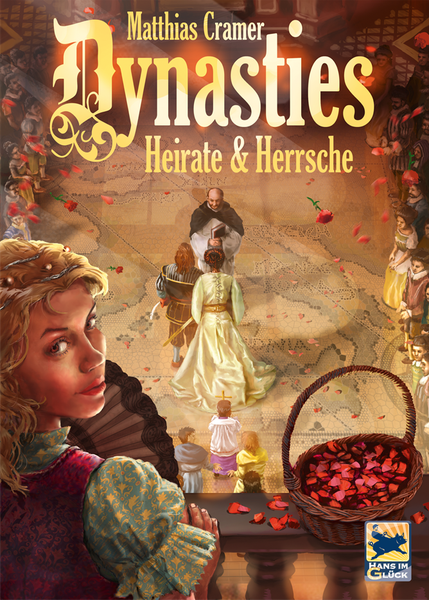








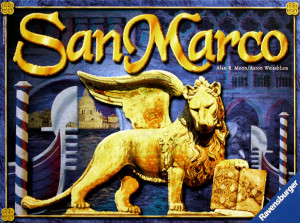
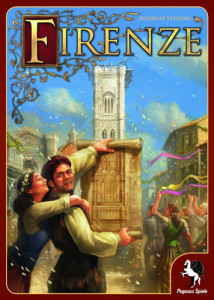
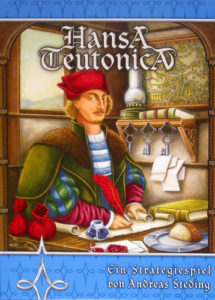
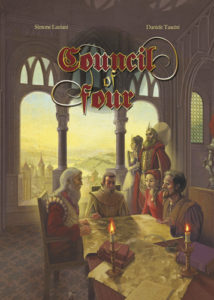
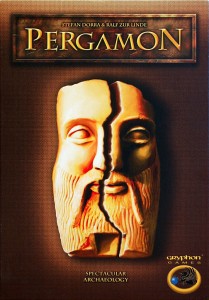
Sam says
Currently only available in Germany (though the English rules can be found online) Dynasties is from the designer of GNG favourite Watergate: this is also a back-and-to of political shenanigans, but whereas Watergate is strictly a two-player undertaking, Dynasties is probably best with three, or four at a push. There's definitely some droll humour here, but there's also a nifty game based around the enforced sharing of goods: the I-cut-you-choose mechanics of how the good stuff gets divvied up is a simple, but thematically apt, way of sharing power amongst the great and supposedly good of yore. I've two caveats: if anything, it feels slightly over-designed, with a lot of or you could do this-type stuff going on around the basic card actions, to the point where a game that could be a lot of light, accessible fun, has occasionally strayed into cognitive-overload territory. The other is the random factor of the cards you're dealt in the final round can really be a bum deal if you're unlucky - no matter how much control you've exerted up to that point there is a slight sense of destiny flicking the 'v's at you. But all the same, it's a really clever design with a lot of humour, and that's something I always like in a game.